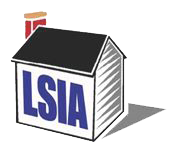Testimony in Support of Maryland Senate Bill 0200
Budget and Taxation Committee
February 6, 2019
Dear Chairman,
I am Brian Almquist from Greenbelt. I am speaking on behave of Greenbelt Advocates for Environmental and Social Justice, which was cofounded with Donna Almquist. Greenbelt Advocates is leading a grass-roots campaign to unite residents that oppose the MAGLEV project (“the Project”). We have mailed 317 hand-written letters to the MTA and to elected officials from people that oppose the Project.
We support Maryland Senate Bill 0200 which is co-sponsored by Maryland Senators Paul Pinsky and Doug Peters. The bill would prohibit the State from using any appropriation for a magnetic levitation (MAGLEV) transportation system located or to be located in the State.
The Project is bad for Maryland residents. We believe many residents are still unaware of the Project due to a lack of sufficient notification by the MTA.
The Project, which includes the high-speed trains and a completely new infrastructure to support their operation, has been proposed by Baltimore-Washington Rapid Rail (BWRR) to provide 15-minute trip service between Baltimore and Washington D.C. with only one additional stop at BWI Thurgood Marshall Airport. The recently released Final Alternatives Report (“the Alternatives Report”) contains new details about the Project.
The new infrastructure is massive. SB 0200 protects State funds so they can be used to expand current infrastructures (AMTRAK, MARC) – which is a more efficient use of State funds.
According to the Alternatives Report, the Project will require construction of deep tunnels, above-ground viaducts as tall as 140 feet, four power substations, vent plants located above the underground sections of the final route, a 241 acre rolling stock depot, other maintenance and/or ancillary facilities, and ingress/egress roads. According to the Alternatives Report, two to six trains per hour would be needed for the Baltimore to Washington service.
The Project will have no meaningful impact on local vehicle traffic. SB 0200 protects State funds so they can be used to upgrade our current mass transit system – which will reduce congestion.
The Project will not reduce regional automobile traffic or reduce congestion and greenhouse gas emissions. With stops only in Washington D.C., BWI Thurgood Marshall Airport, and Baltimore City, it will not serve intra-regional traffic which makes up the majority of automobile trips in the region.
The Project does not support Maryland’s Renewable Energy Guidelines. SB 0200 will prevent the use of State funds on a Project that consumes large amounts of energy to transport a relatively small number of riders.
According to the Alternatives Report, the Project will draw power from the grid. As expected the train will use electricity from conventional power sources, which are the primary sources in Maryland and the rest of the United States. These conventional power sources include coal and natural gas, which do cause pollution. But even before the train begins to transport passengers, the extensive use of concrete and other materials to construct the infrastructure, the transportation of parts and materials in the supply chain, and the generation of electricity for interrelated processes will consume energy and produce pollution.
According to the Alternatives Report the train will consume 30% less energy than other high-speed MAGLEV trains, and 50% less than a commercial airliner. But, the Alternatives Report does not provide estimates of ridership, which are critical to make an accurate comparison of alternative modes of transportation.
SB 0200 will prevent State funds from being used to build a massive and unnecessary infrastructure; and protect Maryland’s natural environment for future generations.
According to the Alternatives Report the above-ground portion of the final route would cross or run on open and forested lands adjacent to the BWP and across wetland areas and other resource areas. Wildlife habitat, open space, and forests, which affect our quality of life, do not need to be sacrificed just to get somewhere a few minutes faster. According to the 2018 World Wildlife Fund Living Planet Report (“the Planet Report”) transportation is one of the common causes of habitat loss and degradation of natural areas. The Planet Report
identifies infrastructure projects as one of the most common pressures causing deforestation and forest degradation.
The Project is not economically feasible. SB 0200 will protect Maryland residents from a future bailout.
We contend the Project is not economically feasible due to low ridership and will end up being a tax burden on Maryland residents. The costs to ride the train will eliminate the average commuter or leisure traveler. The Alternatives Report mentions the Project expanding into Boston and New York City, which may be an early warning that BWRR does not expect the limited service between Washington D.C. and Baltimore City to attract a sufficient number of riders to cover the cost of the Project. There are better alternatives for Maryland.
The Project will be privately-owned and therefore not a form of public transportation and from a social perspective will not serve people from a range of socio-economic backgrounds and will not strive to address the mobility, accessibility, safety, and equity needs of the community.
We would like to see investments in mass transit systems that serve all travelers not just the elite traveler, and that use only existing infrastructure to avoid the destruction of precious wildlife habitat, open space, forested lands, and established communities. We contend the Project will leave a negative legacy for future generations of Maryland residents.
Brian Almquist
Greenbelt Advocates for Environmental and Social Justice
greenbeltadvocates.esj@gmail.com
